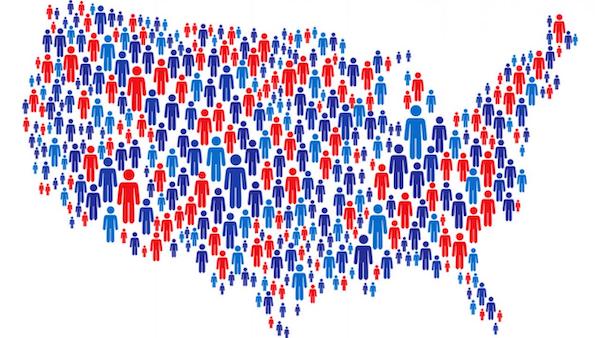“Winning in the South is the key to saving our democracy,” Alphonso Mayfield remarked recently. “The politics and power structures that exist here will shape the rest of the country. The South lacks the structural buffers that the North has had because of the success of the labor movement decades ago. But the rest of the nation is catching up with the South.” Mayfield is the President of the SEIU Florida Public Services Union. Over the past decade, he has reinvigorated the union through a focus on member-driven campaigns and an investment in the community. Over the course of several weeks, Forge editor Lindsay Zafir emailed and spoke with him about what the labor movement can learn from organizing drives in the South, why our approach must change with the shifting economy, and the reason that relationships are at the center of it all. Here are some excerpts from their conversations.
On organizing the whole worker
Labor’s relationship with non-labor entities has improved a lot since I started, where it was completely transactional. But when we only try to organize workers where they work, we miss out on 75 percent of who they are. Our job is not just to get the most in their contract — because we can get people $30 an hour, but if health insurance has shot up so much or if they can’t afford to live or if they can’t leverage their capital with a banking institution or they live in a food desert, guess what? That $30 an hour means nothing. And so we have to work with other entities and build our muscle around engaging with the totality of who people are, including faith. Because when we don’t, we lose. We have to organize whole people. Organizing really has to be about: how we are in relationship with people and how do we build vehicles where people are in relationship with each other?
Because here’s a thing that I know. There are people who I work with who, politically, I’m on the other side of. I’ll fight you about them though. I might disagree with what they said, and I might cuss them out, but you can’t do that. That’s the power. That is the power. I can love someone and be in relationship with them and disagree with them. I don’t believe that I have to be right all the time. When we operate in that place, those are the campaigns that win. Those are the campaigns that overcome obstacles and stay focused. It’s when we don’t do that, or when we try to do this paint-by-numbers type of organizing, that we lose.
On minority unionism
The movement has assumed that a union in the South — or, subsequently, a minority union — is somehow inherently weaker. There is an undertone that we aren’t doing it right. The truth of the matter is that all our unions have been minority unions. You’ve had a very small, engaged activist part of the membership. And, honestly, I think in the North and other places where union protections were a lot stronger, a lot less effort had to be put into keeping the membership engaged. And that’s why, after anti-union legislation passed, a lot of unions in the North didn’t have full membership lists; they didn’t have a clear picture of who was paying dues and who wasn’t because they rested on those structures. Unions in the South have historically had no structural protections because of the adversarial nature of dealing with the boss — which is deeply tinged with racism. And in many ways, unions in the South have the full power of the state working against us and a lot of other cultural structures pushing against us. We have seen a slow merging of corporate power and state power — all in the service of capital and profit margins. This is what we fight against.
So, a lot of what comes up is, “Well, this union is not at 80 percent membership and so it’s weaker.” Yeah. But you have a higher participation of activists in this union, and its operating in a much more difficult structural environment. With these attacks against union protections and open shop in the public sector, there’s a need for us to structurally re-envision what it means to build a union. And I think that people in the North can learn a lot from the South — what has worked and what has not worked.
On changing our organizing structures
What we now consider a bargaining unit won’t exist as we know it in twenty years. Because of the change in corporate structures, because of how capital is consolidated, what we consider bargaining units are going to change. It’s going to look a lot more like freelance, a lot more like contracting work, a lot more like Uber and Lyft — and a lot less like manufacturing plants or even hospitals. You can imagine, in the future, a hospital where everybody’s there as “an independent contractor” who’s working for an individual LLC. Because it mitigates the risk, it lowers their overall price point, it lowers their benefit points, similar to how they do at airports and in other parts of the private sector.
What that means is that how we have traditionally organized — finding a bargaining unit, finding the leaders in a shop, figuring out who has the relationships and building out — is going to look different. It’s going to look different legally and corporately because current labor laws aren’t going to be applicable, but it’s also going to be different because you’re going to have to cobble together a coalition of the willing that looks more like a trade association than it does what we would consider a bargaining unit.
Personally, I don’t give a fuck if it’s a union, an association, a decentralized organization, a rap group, an LLC, a co-op, a knitting club, a rugby group — if they’re all organized from a central place of giving workers agency and power, spreading the economic pie, and helping to make sure that communities have a voice, I don’t care about the structure. We’re so caught up in these boxes that we’re missing the bigger game.
On funding
We have to wrestle with the problem of funding. We need to separate two questions: who do we organize and how do you pay? A lot of times, organizing decisions are based off funding. But if we understand that there are workers who are the most at risk and the most important for the moment that we’re in, then we should struggle with the funding decision separately.
Maybe that means building more corporate structures where everybody has equity and it’s owned by the workers. We have to think about all the vehicles that are available to us to actually give workers agency. Because that’s the actual point: give them agency and also figure out how to push the economy in a direction that is more pro-worker and more community focused. We don’t do that. We stick to the narrow set of things that we feel comfortable with. Meanwhile, our opposition has gone in a million different directions, trying to figure out every possible way that they can increase power.
On building an interracial movement
The only way to win in the South is to get whites, Blacks, and other workers of color to align themselves in each other’s self interest. I don’t know if that is possible. But it is the ballgame. If I am being honest, I have a deep distrust of cross-racial solidarity as a means of power building. I am not alone in this, whether it is said or not. Deep down, to be Black is to distrust that people who are not Black are going to care enough about equality that they’re going to go through everything that’s necessary to fight and win.
Because I’m distrustful and because I’m afraid, I know that it’s the most important thing that we have to focus on. Having a conversation about race is hard. Having a conversation with a white worker who grew up poor, has known poverty their whole life, and trying to say to them, “Structural racism is a real thing,” is one of the hardest fucking things you’ll do. And having a conversation with Black workers to say, “Yeah, it’s been fucked up. Structural racism is bad. And oppression is really, really bad, but we have to get them in the boat with us to be able to win because that’s the game” — it’s a very hard thing to do too.
There are all these small decisions that we make that actually reinforce the problem. And that has, in some ways, opened a door for the QAnons, the Trump folks, to come in, because they’re speaking to a part of people’s identity that they feel like they have to hide. The only way for us to win is for people to bring their full identities into the conversation, even the parts that are messy. I don’t have to completely agree with you; there’s a beauty in understanding, “Look, I don’t agree with that bullshit, but I love you.”
I have had serious issues with one of my members about race. But we reached a level of mutual respect and understanding, and I have seen this person completely change over the past ten years. That wouldn’t have happened if we hadn’t really struggled. I also had to open up. And I had to give and I had to forgive. And asking any group of marginalized people to open up and forgive is unbelievably hard. I just very bluntly say, “We’re not going to do this if it’s not together.” It won’t happen. It will not happen, and we have to struggle with that to be able to do it.
On purity
I was talking to one of my members recently. He’s an older Black guy, been a member for like 40 years. Some crazy number. He said, “Man, look, I don’t want to be poor. You think I’d work this hard if I have to? If I could be rich tomorrow, I’d be rich tomorrow. And I’d pay my taxes and complain and everything else. Hell, I might vote Republican.” And he laughed. It was his joke. He said, “We’re doing this because we have to.” And I think that we forget that sometimes. Everybody wants a better life and everybody wants to be in a different place. Everybody wants to leave something for their kids and their grandkids. My grandmother’s dream was for me to be in the position that I am now. My mother broke her fucking back for me to be able to live in a nice place, put some money away, save something, have health insurance, and not have to worry. I think sometimes we forget that because we’re so caught up in being pure in the fight. And purity will get you killed. Purity will make sure you lose. I don’t care about being pure. I care about fucking winning.


